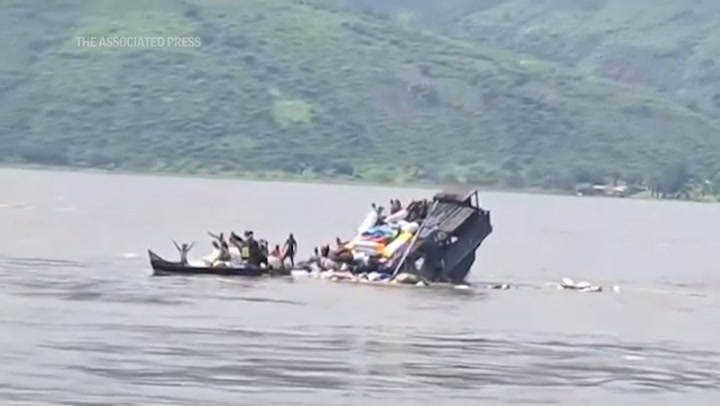KINSHASA, Congo — A boat accident on the Lukeni river in western Congo has left at least 20 people dead and hundreds missing, local officials reported Tuesday. The incident, which occurred over the weekend, marks the latest in a series of deadly maritime accidents in the central African nation.

Jacques Nzenza Mongie, the Kutu territory administrator, told The Associated Press that the motorized wooden vessel was carrying approximately 300 passengers when it collided with a sunken barge while navigating at night. The crash resulted in at least 20 confirmed fatalities, with corpses recovered during Tuesday’s search efforts.
“We’ve rescued 46 people so far, but hundreds are still unaccounted for,” Mongie said during a news conference. The full extent of the casualties remains unclear as search and rescue operations continue.
The accident highlights persistent safety issues in Congo’s waterways. Overloading and night navigation, both illegal practices in the country, are often cited as contributing factors to such incidents. In June, a similar tragedy near the capital resulted in 80 deaths when an overloaded boat sank.
Lebon Nkoso Kevan, governor of Maï-Ndombe province where the accident occurred, announced that a provincial commission has been dispatched to the site to investigate the cause and determine responsibility. “Navigating by night is strictly prohibited in Congo,” Kevan emphasized, underscoring the gravity of the violation.

Congolese officials have repeatedly warned against overloading and pledged to penalize those who violate water transportation safety measures. However, enforcement remains a challenge in a country with vast waterways and limited resources for monitoring.
The frequency of such accidents points to broader issues in Congo’s transportation infrastructure. Many communities rely heavily on river transport due to poor road conditions and limited alternatives, often leading to overcrowding on available vessels.
Maritime experts suggest that improving safety standards, enhancing regulatory oversight, and investing in modern navigation equipment could help prevent future tragedies. However, implementing such measures across Congo’s extensive river network presents significant logistical and financial challenges.



